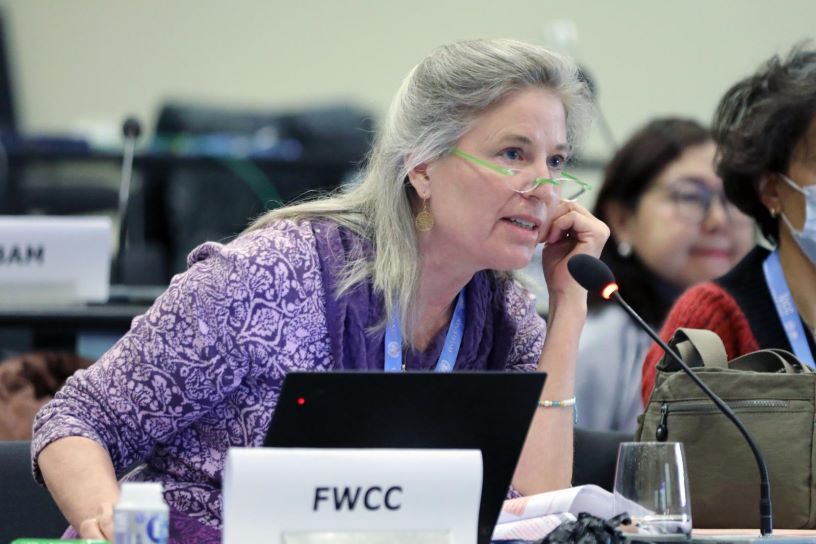Quaker voice heard at crunch climate talks
Quakers were an integral part of a global scientists' report this month which delivered a 'final warning' on the climate crisis.

Act now or it's too late, concluded the Synthesis Report of the Intergovernmental Panel on Climate Change (IPCC) which took seven years and hundreds of scientists to draw up.
During the marathon final session, including a last 24 hours with minimal eating breaks and no sleep, the Quaker United Nations Office (QUNO) worked hard to ensure that the report set out the risks clearly and was not watered down.
Changes suggested by QUNO's Lindsey Fielder Cook ensured solutions based on climate justice, rights-based approaches, and sufficient climate finance were emphasised.
The risks and challenges of carbon capture and large-scale carbon dioxide removal were also recorded in the summary which collates the full findings of the 6th assessment report.
Painstaking, detailed work
Part of the painstaking, detailed work at the coalface of the climate crisis, Cook and her colleague Alana Carlson made 24 interventions (read here), focusing on urgent, transformative, and rights-based climate policies.
Quakers were mentioned 21 times in the Earth Negotiations Bulletin, the independent reporting service on UN climate talks, which called QUNO “the ethical voice in the room."
“It is hard to emphasise how unusual is our Quaker access in the IPCC-approval space," said Cook, QUNO representative for climate change, who made the interventions on behalf of Friends World Committee for Consultation (FWCC).
Saying that people around the world need hope, QUNO was unsuccessful in urging countries in the room to retain the IPCC draft finding that: “urgent, feasible and equitable near-term options are available at scale to address climate change and improve human wellbeing."
Created in 1988 to inform governments of the latest climate science, IPCC reports give a clear picture of the current situation and are increasingly used to hold governments accountable for climate action.
But the summary for policy makers (SPM) is subject to an approval process where member states can debate each sentence with IPCC scientists.
While scientists can refuse suggestions, the SPM is open to political influence.
QUNO represents Quaker concerns for global peace and justice to the international community in the Quaker tradition of patient, quiet diplomacy, and long-term persistence.
Their work is made possible by funding from Britain Yearly Meeting and American Friends Service Committee, alongside many Quaker funds, meetings, and individuals.
QUNO are one of a number of observers at the IPCC who seek to uphold transparency and scientific integrity.